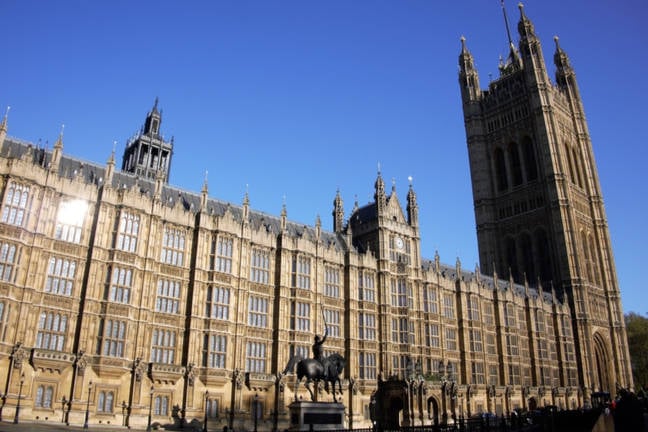CHAT CONTROL 2.0 THROUGH THE BACK DOOR – Breyer warns: “The EU is playing us for fools – now they’re scanning our texts and banning teens!”
Just before a decisive meeting in Brussels, digital rights expert and former Member of the European Parliament Dr. Patrick Breyer is sounding the alarm. Using a “deceptive sleight of hand,” a mandatory and expanded Chat Control is being pushed through the back door, in a form even more intrusive than the originally rejected plan. The legislative package could be greenlit tomorrow in a closed-door EU working group session.
“This is a political deception of the highest order,” warns Breyer. “Following loud public protests, several member states including Germany, the Netherlands, Poland, and Austria said ‘No’ to indiscriminate Chat Control. Now it’s coming back through the back door – disguised, more dangerous, and more comprehensive than ever. The public is being played for fools.”
According to Breyer, the new compromise proposal is a Trojan horse containing three poison pills for digital freedom:
1. MANDATORY CHAT CONTROL – MASKED AS “RISK MITIGATION”
Officially, explicit scanning obligations have been dropped. But a loophole in Article 4 of the new draft obliges providers of e-mail, chat and messenger services like WhatsApp to take “all appropriate risk mitigation measures.” This means they can still be forced to scan all private messages – including on end-to-end encrypted services.
“The loophole renders the much-praised removal of detection orders worthless and negates their supposed voluntary nature,” says Breyer. “Even client-side scanning (CSS) on our smartphones could soon become mandatory – the end of secure encryption.”
2. TOTAL SURVEILLANCE OF TEXT CHATS: A “DIGITAL WITCH HUNT”
The supposedly voluntary “Chat Control” goes far beyond the previously discussed scanning of photos, videos, and links. Now, algorithms and AI can be used to mass-scan the private chat texts and metadata of all citizens for suspicious keywords and signals.
“No AI can reliably distinguish between a flirt, sarcasm, and criminal ‘grooming’,” explains Breyer. “Imagine your phone scanning every conversation with your partner, your daughter, your therapist and leaking it just because the word ‘love’ or ‘meet’ appears somewhere. This is not child protection – this is a digital witch hunt. The result will be a flood of false positives, placing innocent citizens under general suspicion and exposing masses of private, even intimate, chats and photos to strangers.” Under the current voluntary “Chat Control 1.0” scanning scheme, German federal police (BKA) already warn that around 50% of all reports are criminally irrelevant, equating to tens of thousands of leaked legal chats per year.
3. DIGITAL HOUSE ARREST FOR TEENS & THE END OF ANONYMOUS COMMUNICATION
In the shadow of the Chat Control debate, two other disastrous measures are being pushed through:
The End of Anonymous Communication: To reliably identify minors as required by the text, every citizen would have to present their ID or have their face scanned to open an email or messenger account. “This is the de facto end of anonymous communication online – a disaster for whistleblowers, journalists, political activists, and people seeking help who rely on the protection of anonymity,” warns Breyer.
“Digital House Arrest”: Teens under 16 face a blanket ban from WhatsApp, Instagram, online games, and countless other apps with chat functions, allegedly to protect them from grooming. “Digital isolation instead of education, protection by exclusion instead of empowerment – this is paternalistic, out of touch with reality, and pedagogical nonsense.”
URGENT APPEAL: GOVERNMENTS MUST NOW USE THEIR VETO!
Several EU governments—including those of Germany, the Netherlands, Poland, Czechia, Luxembourg, Finland, Austria, and Estonia—have previously voiced strong opposition to indiscriminate mass scanning.
“Now, these governments must show some backbone!” demands Breyer. “Block this sham compromise in the Council and demand immediate corrections to save the fundamental rights of all citizens. The EU Parliament has already shown, across party lines, how child protection and digital freedom can be achieved together.”
Breyer suggests the following immediate corrections before any government should agree:
- No mandatory chat control through the back door: Clarify that scans cannot be enforced as “risk mitigation.”
- No AI chat police: Restrict scanning to known child sexual abuse material (CSAM).
- No mass surveillance: Only allow targeted surveillance of suspects based on a court order.
- Preserve the right to anonymity: The mandatory age verification requirements must be scrapped.
“They are selling us security but delivering a total surveillance machine,” Breyer concludes. “They promise child protection but punish our children and criminalize privacy. This is not a compromise – this is a fraud against the citizen. And no democratic government should make itself an accomplice.”





